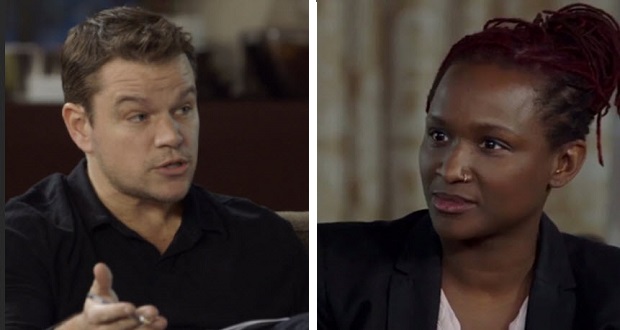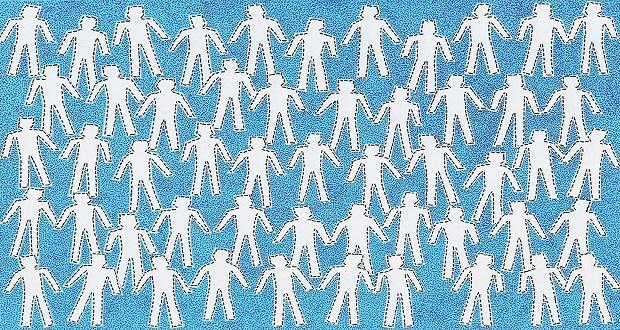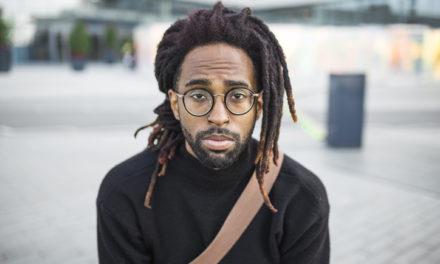
I think Matt Damon’s a pretty cool guy—except when he says some pretty un-cool things. On a recent episode of Project Greenlight, an HBO reality series that focuses on giving filmmakers a chance to direct a big movie, Damon, who co-produces and co-stars in the show, offered his thoughts on the important topic of diversity in Hollywood: He said it wasn’t necessarily that important.
“When we’re talking about diversity, you do it in the casting of the film, not in the casting of the show,” Damon remarked. In other words, diversity matters onscreen, not so much off.
Damon, a judge on the show, said that as part of a conversation during which Effie Brown, a black movie producer and fellow panelist (most known for Dear White People), cautioned her fellow judges about choosing a diverse directing team. She explained, “I just want to urge people to think about, whoever this director is, the way they’re going to treat the character of Harmony, her being a prostitute, the only black person who gets beat by her white pimp.”
That’s when Damon made his remark. And that’s when Brown mustered a shocked reply, “Wow, OK.”
Many critics had a lot more than that to say about Damonsplaining, a take on the term whitesplaining, when white people try to explain racism to people of color. You can pretty much imagine the backlash on Twitter, from thoughtful to rude to everything in between, and there’s even an online petition demanding that Damon apologize to Brown.
“While raising concerns that an all white make directing team might not be the best choice to properly direct a movie about a black female prostitute who is slapped by her white pimp—Matt Damon decided to cut her off and whitesplained diversity to Effie Brown,” reads the petition.
Of course, you can also imagine there’s a backlash to the backlash, particularly among conservatives, who can be just as thoughtful and nonsensical as liberals.
Here’s what it comes down to: Damon does not owe a personal apology to Brown, who tweeted: “Ooof! Wow! Okay. Thank you for watching the show and getting a great conversation started. I can’t wait to hear you on the other episodes!”
Damon does, however, need to rethink his remark. Of course diversity matters behind the camera. Why would it not? According to a study that examined 500 top-grossing fims released between 2007 and 2012, there was one black director for every 16 non-black directors. What’s more, there were only two black female directors.
Later in the same episode, Damon explained his earlier comment: “If suddenly you change the rules of this competition at the 11th hour, it just seems like you would undermine what the competition is supposed to be about, which is about giving someone this job based entirely on merit and leaving all other factors out of it,” said Damon. “It’s just strictly a filmmaking competition.”
His heart seems in the right place. He wants to choose a director based solely on merit. But this isn’t a Hollywood fairytale. The real world is too complicated, too nuanced, to ignore the role that race plays. So while I hardly think that Damon was shutting down a black woman’s opinion—intentionally or unintentionally—I do think he should use his status to expand diversity among cast and crew alike.


















